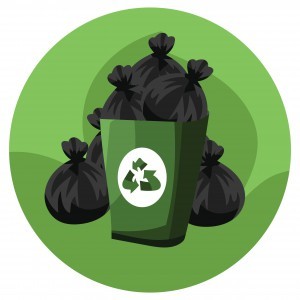Lets work together



Suite 3A, Chapel Allerton House, 114 Harrogate Road, Leeds, LS7 4NY
ukinfo@integrated-skills.com
+44 (0) 3300 888 670

 If you’re lucky enough to be a homeowner, and have a home with even the smallest garden, you produce garden waste. And even garden waste can be deemed as recyclable. Ask any seasoned gardener and they tell you there is goodness in the waste. In the UK, and increasingly across the rest of Europe, councils are offering a service for the collection of domestic garden waste, which makes it easier for householders to manage waste.
If you’re lucky enough to be a homeowner, and have a home with even the smallest garden, you produce garden waste. And even garden waste can be deemed as recyclable. Ask any seasoned gardener and they tell you there is goodness in the waste. In the UK, and increasingly across the rest of Europe, councils are offering a service for the collection of domestic garden waste, which makes it easier for householders to manage waste.
Even if your local council does not offer a garden waste collection service, you have a few options still available. You can take it to a the local ‘tip’, arrange for its collection with a local specialist company or make your own compost.
Visit your Local Tip
Almost all local recycling centres (‘tips’) have a garden waste section. On the whole, they will usually accept waste made up of fruit and vegetables grown at home, grass, weeds, flowers, leaves and pruned branches, as well as bark, twigs and clippings.
When gathering your garden waste, avoid adding ‘contaminants’ such as plastic flower pots, bedding trays, etc. Also, avoid using bin liners which are likely to puncture and tear, and sometimes get mixed with the garden waste at the tip. Better for the environment to use durable, reusable bags… after all, your garden will produce waste year after year!
Third Party Collection
If you are unable to compost garden waste at your home or have no access to the local tip, your local council may offer a free or paid-for garden waste collection service, or you can opt to have it collected by a private company. This is easily done, as there are several companies & charities in the UK who not only collect recyclable waste but will also accept domestic garden waste.
It is worth noting at this point the fact that these companies and charities have as many ‘dos and don’ts’ as the local council as to what will and will not be accepted in terms of garden waste. This is because the garden waste typically ends up at the same place at the end of its journey! As long as you keep your waste as organic as possible, the process should be worry-free.
If you plan to have your garden waste collected with recycling and residual waste, ensure that the waste streams are completely separate from one another when you set them out. This helps ensure that there is less contamination of the waste streams. Excess contamination of waste streams may lead to much of it being placed in landfill rather than being recycled: This very much depends on the policies and technologies deployed by the collection organisation as to how they ‘sort’ and ‘cleanse’ waste streams as they try to minimise the contamination and maximise the value of the ‘pure’ recyclate.
Making your own Compost
You can reuse your domestic garden waste by recycling it yourself. This is by far the ‘greenest’ way of managing garden waste as it minimises mileage of waste collection vehicles as well as reducing the need for technology to sort & cleanse waste at recycling centres. The compost you generate can be applied to the garden beds on your property to provide next season’s plants with protection and nourishment over the winter. And if you produce excess compost you can also donate it to community groups or charities, or sell it to you neighbours!
There are numerous online sites that can guide you through how to compost garden waste, and many community charities run education schemes. In essence you can start composting by making a heap in a corner of your garden, or by placing compost into one of the many specialist containers (bins) available at garden centres. Some local authorities offer reduced priced containers as part of environmental schemes.
Your compost can contain fallen leaves, clippings and mowing from weeds and lawns, organic kitchen waste (food waste), clippings from soft hedges and old bedding plants. In the case of food waste, anything that is ‘green’ (vegetables) can be added to the compost though dairy, fish or meat should be avoided as these may attract undesirable pests. Again, there are plenty of online sources of how to manage food waste with your garden waste.
Any compost pile or bin should be created in layers, with a layer of soil or fresh manure between each compost layer. When your heap or bin has reached capacity, it’s time to leave it covered for several months so that the materials can biodegrade. When that’s complete, you will be left with fibrous soil that’s ideal for improving the health of your gardens.
The method you choose to manage your domestic garden waste will depend on several factors. For example, you may have the room to have a compost heap or bin on your property, but no time to fill and turn it. When deciding on the method that’s best for you, consider first whether you could make any use of your garden waste on your own property. If not, it’s time to have your waste collected by your local council, tip or a third-party company.
Would you like to know more about How to Best Manage Domestic Garden Waste? Fill in your details below and let us know how we can help.
Website Designed & Built by we are CODA